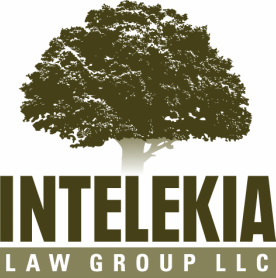One of the most common misconceptions I routinely encounter in law is, in probate and estate administration, the notion that the attorney for the personal representative (“PR,” also called the executor) or the trustee is “the estate’s attorney” and is looking out for the interests of all the heirs and beneficiaries. Nothing could be further from the truth.
Conflicts of Interest and the Attorney’s Role
It seems to go without saying, yet is so often confused, that the PR’s attorney is only the PR’s attorney and is tasked with protecting his or her interests. Clients generally are allowed to have conflicts of interest but attorneys generally are not (see Oregon Rules of Professional Conduct, Rule 1.7). In most instances, it would be an un-waivable conflict of interest, and thus prohibited, for an attorney to represent both sides of a legal issue, such as buyer and seller in a transaction. The same is true as to both sides of a fiduciary duty owed by one party to another. As a PR owes fiduciary duties to the heirs, beneficiaries, and creditors of an estate, one attorney could not represent both the PR and any member of these groups. Doing so would be a conflict of interest for the attorney. (Exception – when one person is the PR and also an heir, for example, it is not a conflict of interest on the attorney’s part to represent a single person that may himself have conflicts of interest.)
Attorney’s Duties to Unrepresented Persons
Now, knowing the attorney cannot represent both the PR and another interested party (heir, beneficiary, or creditor) and assuming the other interested parties are not represented by their own attorneys, ORPC Rule 4.3 limits the ways in which the PR’s attorney can communicate with those other parties. For example, the attorney “shall not give legal advice *** other than the advice to secure counsel ***” and if the attorney knows there is confusion about his role in the matter he “shall make reasonable efforts to correct the misunderstanding.” Given these limitations, it seems somewhat surprising that the myth of the estate’s attorney is so persistent. It is also unsurprising to me the number of complaints I hear from non-PR interested parties that “the estate’s attorney” never returned their calls or wouldn’t answer questions for them. The PR’s attorney is probably trying to avoid creating that confusion about his/her role in the first place.
Why This is Important
The rules regarding attorney conflicts of interest are long-standing and meant to establish boundaries and to protect clients from the possibility that the representation provided to them by their attorney is not diminished because of the attorney’s own interests or representation of another client. Without these rules, the trust between attorney and client, the cornerstone of legal representation would be diminished.
More practically, if the PR’s attorney were, in fact, also the attorney for all of the heirs and beneficiaries, and an actual legal dispute arose, such as a will contest or an objection to the PR’s final accounting, the PR’s attorney would be ethically obligated to resign from representing anyone in the dispute. The PR, along with everyone else, would be forced to retain a new attorney, increasing the cost to the estate by the fees necessary for that new attorney to familiarize him/herself with the case.
Protecting Yourself
If you are an heir or a beneficiary of an estate, it is important to remember the following:
- the PR’s attorney is not your attorney
- the PR’s attorney represents only the PR, and
- the PR’s attorney cannot give you legal advice about your rights and interests in the estate.
You should consult with your own attorney about the probate (or trust administration) process before there is a dispute so that you know where to go and what your options are if one ever arises. While the PR is entitled to have the estate pay his attorney’s fees, however, you are not and bear responsibility for the cost of your own legal representation. Still, most attorneys offer free or low-cost consultations with no further obligation unless and until you hire them to perform some legal service. And, the peace of mind you get from having your own attorney explain your rights is often worth more than the price of admission.
To consult with one of our attorneys regarding your rights as an heir, beneficiary, or creditor of an estate, contact Intelekia Law Group LLC at (503) 227-8580 or through our online form, here.
For informational purposes only and not to be relied upon as legal advice or for the formation of an attorney-client relationship.
- Brook D. Wood
